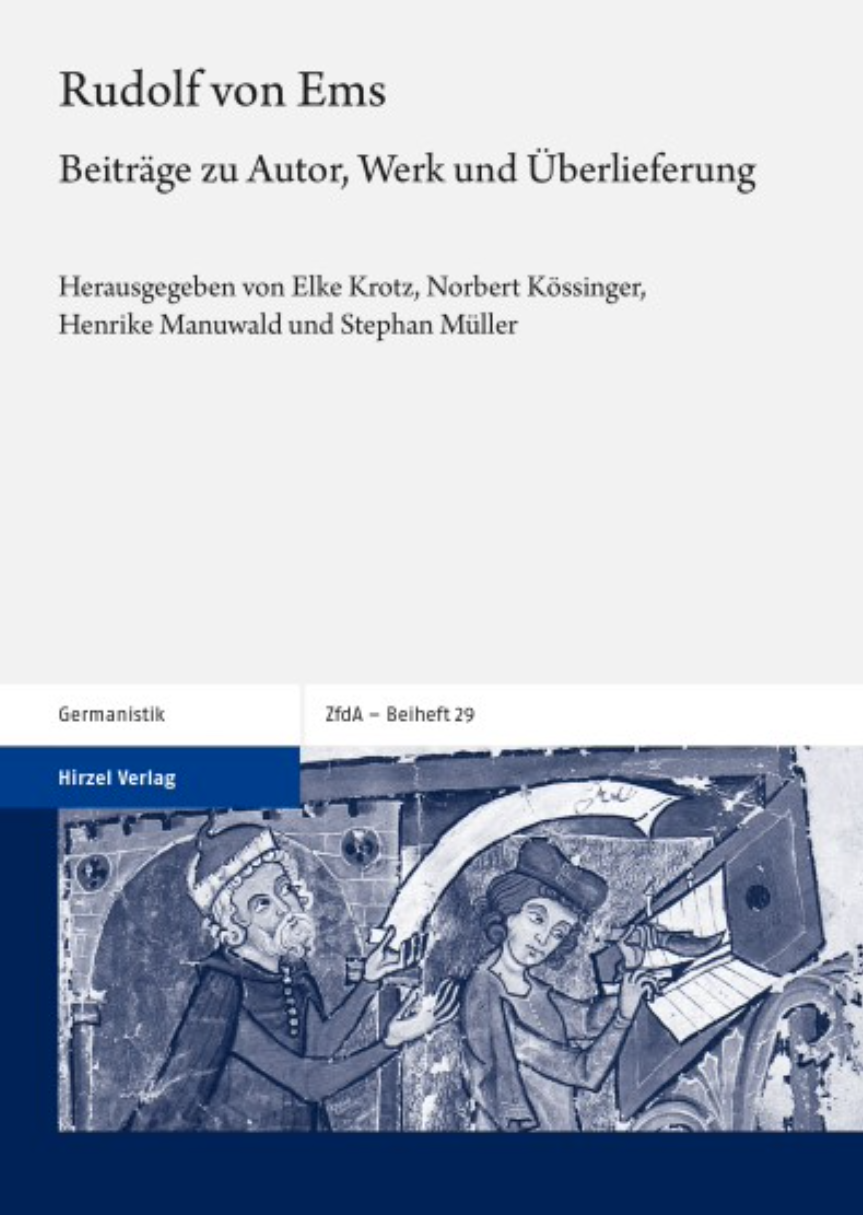
In Krotz, Elke, Norbert Kössinger, Henrike Manuwald & Stephan Müller (Hrsg.), Rudolf von Ems. Beiträge zu Autor, Werk und Überlieferung (ZfdA Beihefte 29), 103–116. Stuttgart: Hirzel.
print
ISBN: 978-3-7776-2679-6
eBook
ISBN: 978-3-7776-2783-0

In Krotz, Elke, Norbert Kössinger, Henrike Manuwald & Stephan Müller (Hrsg.), Rudolf von Ems. Beiträge zu Autor, Werk und Überlieferung (ZfdA Beihefte 29), 103–116. Stuttgart: Hirzel.
print
ISBN: 978-3-7776-2679-6
eBook
ISBN: 978-3-7776-2783-0
„Seid dabei, mehr Diversität und Vielfalt in die Wissensproduktion zu bringen.“
Gisela Febel
»Foucault spricht vom Widerspruch als die Illusion einer Einheit.«
Ingo H. Warnke
„Der Widerspruch des Rechts bei Derrida liegt in dem Zwischenraum, der die Unmöglichkeit einer Dekonstruktion der Gerechtigkeit von der Möglichkeit der Dekonstruktion des Rechts trennt.“
Andreas Fischer-Lescano
„Wissenschaft war lange beseelt von dem Ideal einer widerspruchsfreien Welt, in der sich logische Ordnungen mit Gesellschaft, Politik, Kultur und Sprache verbinden sollten. Im GRK Contradiction Studies arbeiten wir an Beschreibungsmöglichkeiten für die Vielfältigkeit und Komplexität, die Gefährdung und Schönheit der Welt, die über Konzepte der Widerspruchsfreiheit hinausgehen.“
Michi Knecht
„Mit Niklas Luhmann kann man Raum als ‚Sondereinrichtung zur Negation von Widersprüchen‘ begreifen.“
Julia Lossau